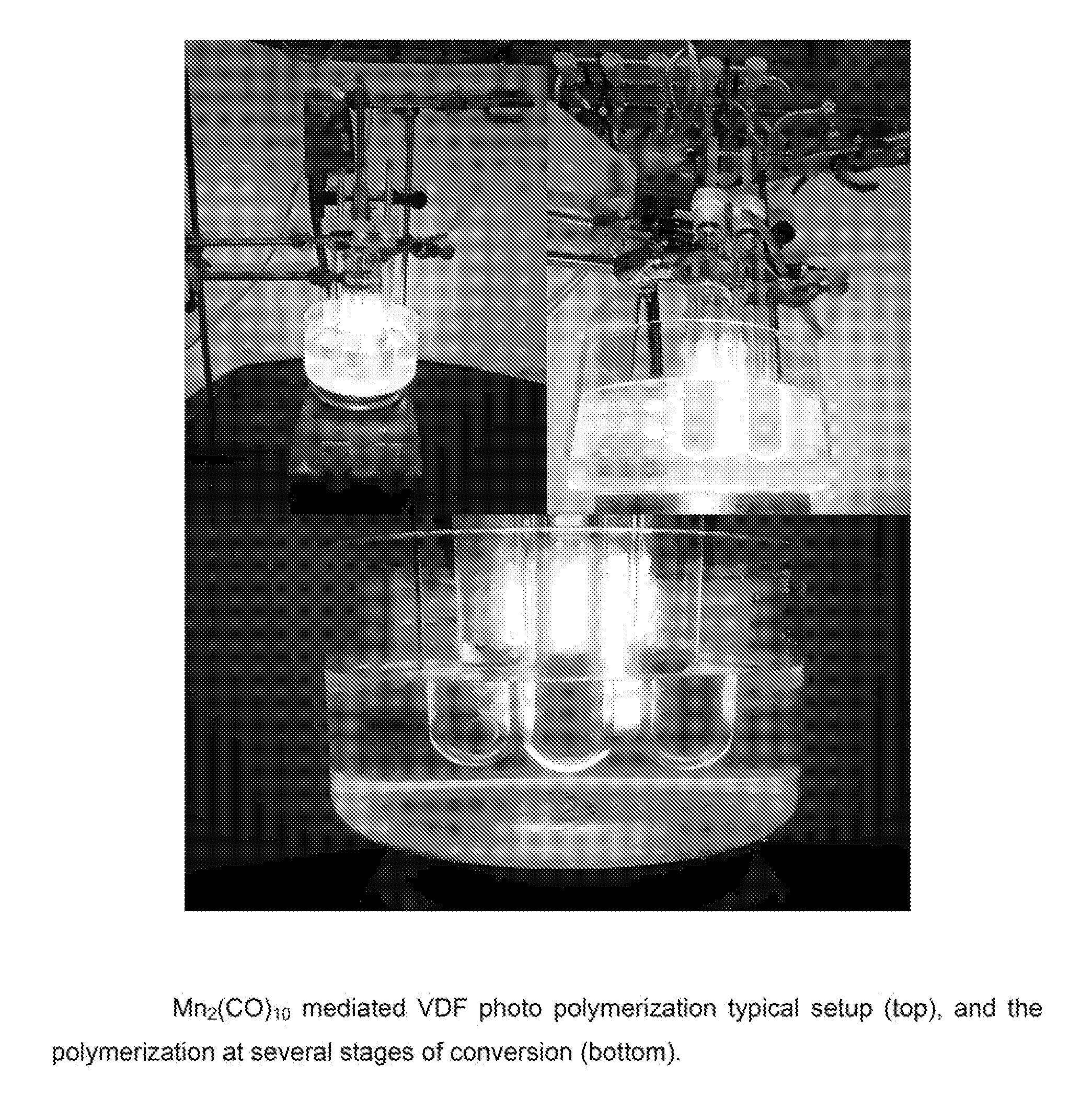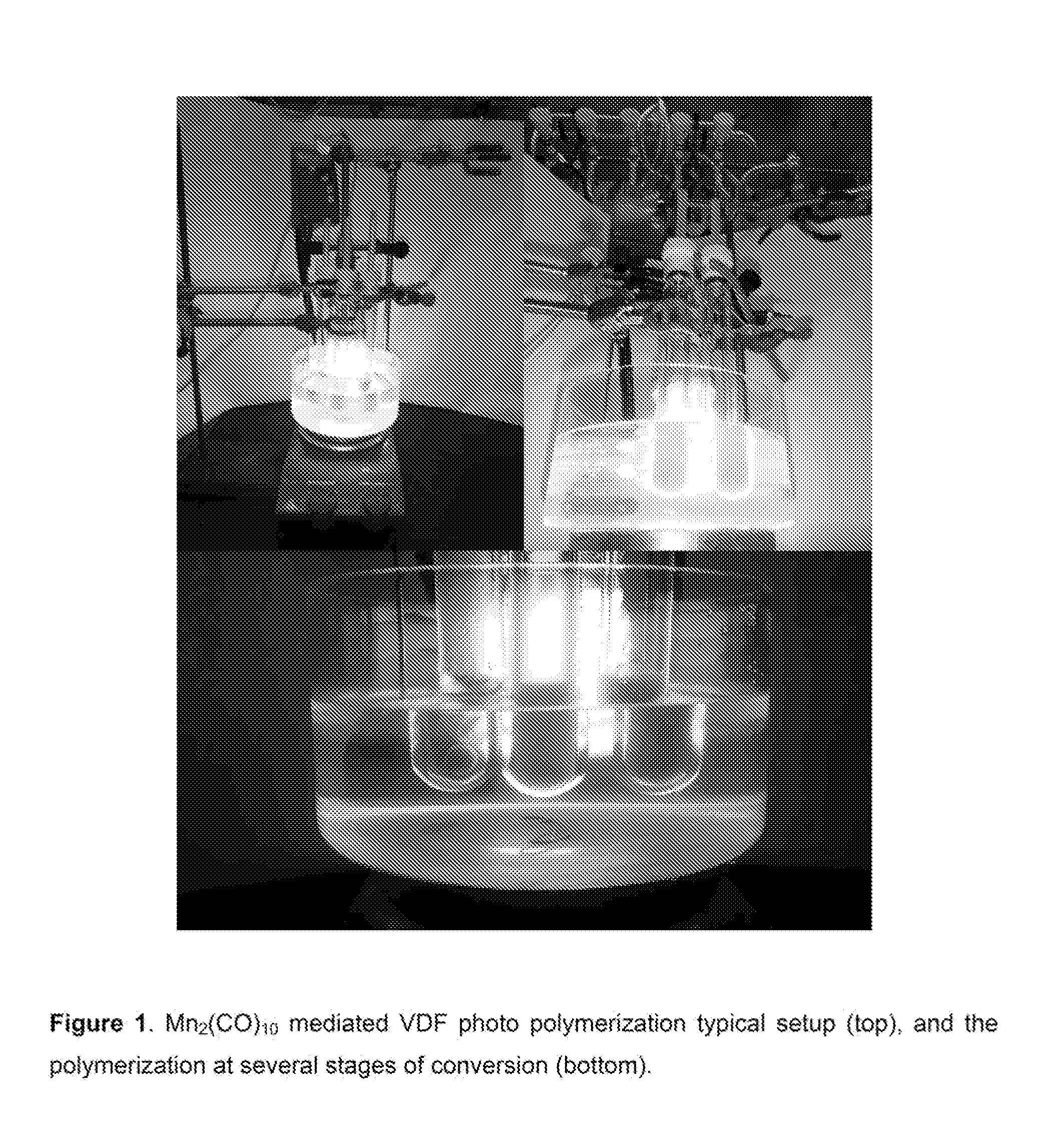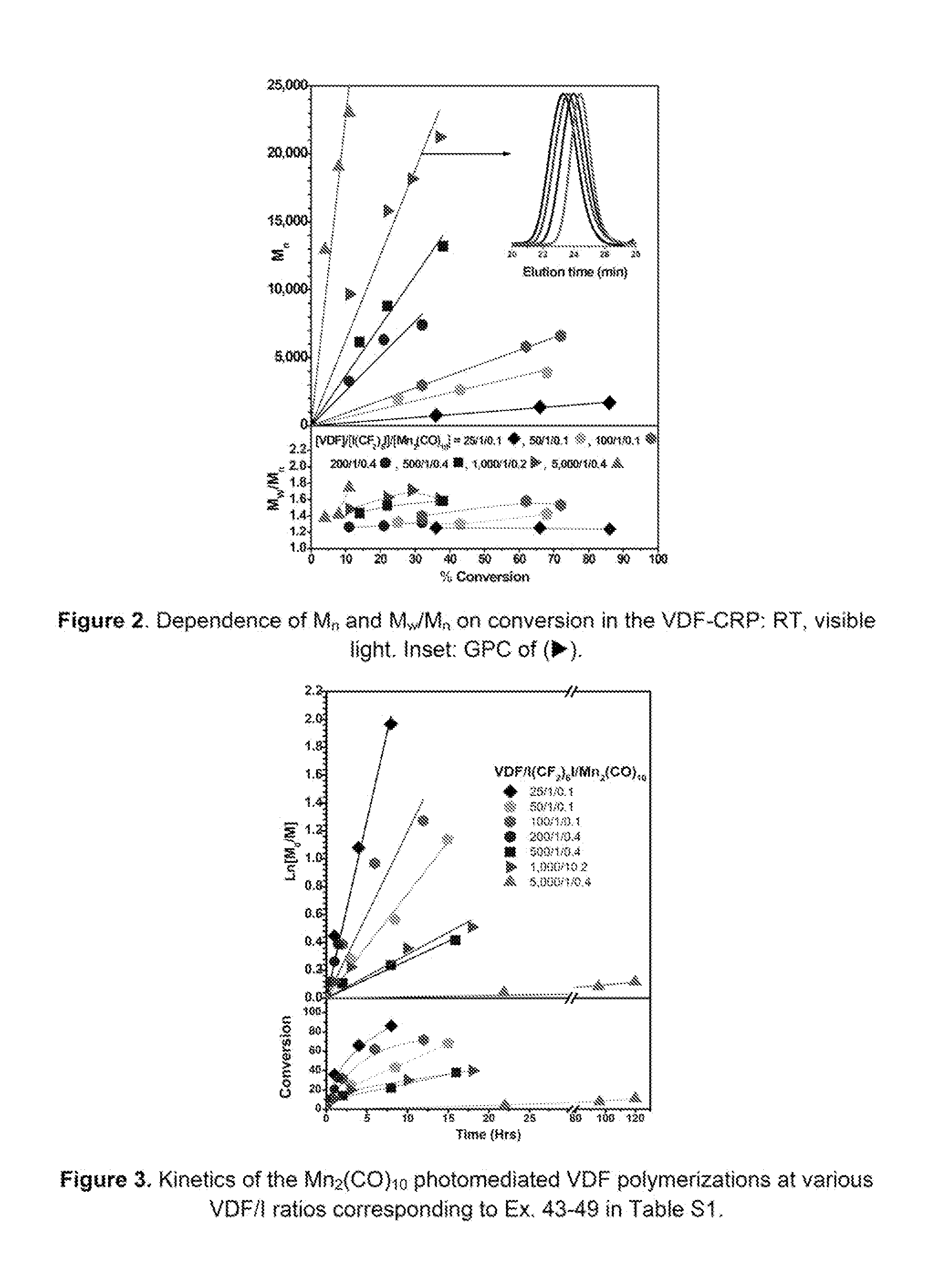Manganese catalyzed photopolymerization of fluorinated monomers
a technology of fluorinated monomers and manganese, which is applied in the field of free radical-controlled radical polymerization and alkene substitution systems, can solve the problems of no reports on metal-mediated vdf polymerization, time-consuming and expensive, and difficult polymerization
- Summary
- Abstract
- Description
- Claims
- Application Information
AI Technical Summary
Benefits of technology
Problems solved by technology
Method used
Image
Examples
Embodiment Construction
[0027]The fluorinated monomer which may be used in the presently disclosed process may be any main chain or side chain fluorinated alkene. Preferably, the fluorinated alkene is vinylidene fluoride (VDF), hexafluoropropene (HFP), tetrafluoroethylene (TFE), trifluorochloroethylene (TFCE), and the like. More preferably, the fluorinated alkene is vinylidene fluoride (VDF). For the copolymers, one or more main chain fluorinated alkene may be employed, or any polymerizable co-monomer may be used as well having a polymerizable double bond.
[0028]Illustrative alkene monomers include, for example, ethylene, propylene, 1-butene, 3-methyl-1-butene, 1-pentene, 2-methyl-1-pentene, 4-methyl-1-pentene, 1-hexene, 1-heptene, 1-octene, 2-methyl-1-octene, 2-ethyl-1-hexene, 5-methyl-1-heptene, 1-nonene, 1-decene, 1-undecene, 1-dodecene, 2-methyl-1-dodecene, 1-tetradecene, 2-methyl-1-tetradecene, 1-hexadecene, 2-methyl-1-hexadecene, 5-methyl-1-hexadecene, 1-octadecene, 2-methyl-1-octadecene, 1-eicosene, ...
PUM
| Property | Measurement | Unit |
|---|---|---|
| PDI | aaaaa | aaaaa |
| PDI | aaaaa | aaaaa |
| PDI | aaaaa | aaaaa |
Abstract
Description
Claims
Application Information
 Login to View More
Login to View More - R&D
- Intellectual Property
- Life Sciences
- Materials
- Tech Scout
- Unparalleled Data Quality
- Higher Quality Content
- 60% Fewer Hallucinations
Browse by: Latest US Patents, China's latest patents, Technical Efficacy Thesaurus, Application Domain, Technology Topic, Popular Technical Reports.
© 2025 PatSnap. All rights reserved.Legal|Privacy policy|Modern Slavery Act Transparency Statement|Sitemap|About US| Contact US: help@patsnap.com



